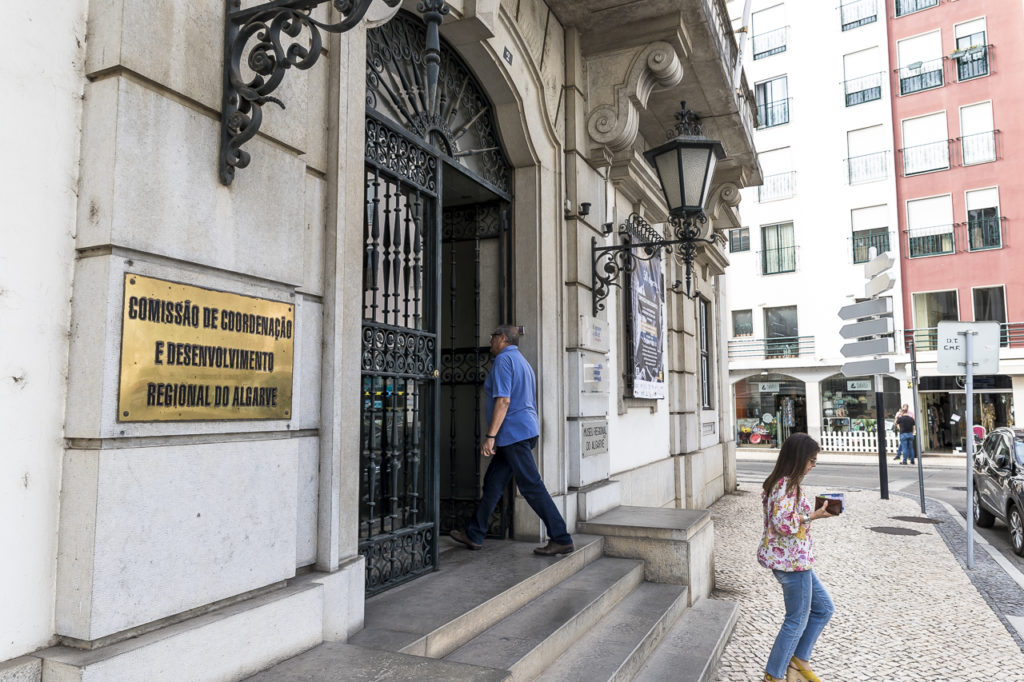The Algarve Regional Coordination and Development Commission (CCDR) will have, from January 1st, another vice-president, in addition to the two who are already part of the structure.
This change is contained in the new CCDR Algarve Statutes, published on Tuesday, December 5th, in Diário da República, through Ordinance No. 403/2023 of the Presidency of the Council of Ministers, Finance and Territorial Cohesion.
José Apolinário, president of CCDR Algarve, told Sul Informação that «until the local elections in October 2025, the current presidential team will remain in place and a third vice-president will be co-opted». This new element will be “co-opted [chosen] by the current presidency and proposed to the Government”.
The fact that it only has three vice-presidents is a specific feature of the Algarve CCDR. The rest, due to the larger size of the geographic and population areas covered – North, Center, Lisbon and Tagus Valley and Alentejo – should have four vice presidents.
But the big news about the new functions is the absorption, by the Coordination Committee, of the competencies (and employees) of other entities, such as the Regional Directorates of Culture and Agriculture and Fisheries.
The CCDR will also become part of one of the functions of the current Regional Delegation of the DGEsTE (General Directorate of School Establishments), monitoring the school park.
Since other responsibilities in the area of Education had already been transferred to either the Municipalities, the Groups, or even the central services of the Ministry of Education, the DGEsTE Regional Delegation (probably under another name) will only be left with the monitoring function. pedagogical.
On the other hand, the CCDR will also integrate one of the current responsibilities of the Institute for Nature Conservation (ICNF): the co-management of protected areas.
A significant change in the way the Coordination Committee operates is the fact that, in addition to the headquarters, in Faro, the new structure will now provide, as «territorially deconcentrated organic units», the sub-regional services of Barlavento, which will be located in the municipality of Lagoa, as well as those of Patacão, Tavira and Alcoutim.
In the case of the Barlavento delegation, according to José Apolinário, it will be located in the existing facilities at the entrance to the Arade Fishing Port, which is located in the municipality of Lagoa. This delegation will begin by hosting “agriculture and fisheries services. but the intention is to extend the other CCDR services to Barlavento,” he added.
In Patacão, which has been the headquarters of the Regional Directorate of Agriculture (and, in recent years, also of Fisheries) for decades, services linked to the agricultural and rural sector will be located.
In Tavira, in the old Posto Agrario, there will be an Innovation Center. In Alcoutim, there will, for now, be facilities and an employee.
The Statutes provide for the existence of six operational organic units, three of them encompassing functions that, for the most part, were already part of the work of the CCDR Algarve (Units for Planning and Regional Development, Environment, Nature Conservation and Biodiversity and also Planning and Planning Units). Territory).
But there are three big new features: the Culture, Investment and Innovation Units in Agriculture and Fisheries and finally Agri-food and Rural Development.
In the case of the latter two, it appears that the responsibilities previously assumed by the Regional Directorate of Agriculture and Fisheries are now divided into two organic units of the CCDR.
As for the Culture Unit, which absorbs all the functions previously attributed to the Regional Directorate of Culture, but also includes others that were under the responsibility of the CCDR itself (in the area of encouraging reading and access to information), this is the unit that occupies more space (three pages) in the 18 pages of the Ordinance that enshrines the new Statutes.
The Ordinance and the Statutes that accompany it determine the internal organization of the CCDR Algarve, after Decree-Law no. 36/2023, of 26 May, carried out the «restructuring of the Regional Coordination and Development Commissions (CCDR), converting them into public institutes with a special regime integrated into the indirect administration of the State, with legal personality, endowed with administrative, financial and patrimonial autonomy, now known as Regional Coordination and Development Commissions, IP (CCDR, IP)».
Click here to see the Ordinance in full



















Comments